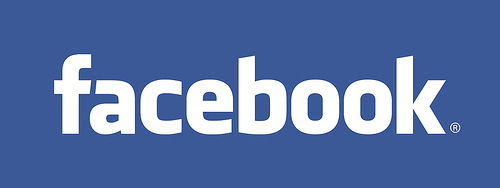 Facebook has launched a new ad platform called “Project Beacon”:
Facebook has launched a new ad platform called “Project Beacon”:
the new program is threefold: advertisers can create branded pages, run targeted advertisements, and have access to intelligence and analytics pertaining to the site’s more than 50 million users. Partners can participate in all three components of Facebook Ads, or a combination of them. “When you put this all together, you get some pretty amazing things,” Zuckerberg said of the program, which he said took “four months or so” to develop.
Through the branded pages program, advertisers can design custom pages with information, content, and custom applications—“any application that was written for users on the Facebook Platform,” Zuckerberg explained. Facebook users can sign up as “fans” of that brand, install branded applications, and other activities that will all show up in their profiles’ “mini feeds” and on the “news feeds” that are broadcast to their friends lists.
“When people engage your page on Facebook, that’s going to spread information about your brand virally through the social graph,” Zuckerberg said. “It becomes a trusted referral.”
For MoveOn.org, this new program is going over about as well as news feeds did when they were launched. MoveOn’s Adam Green argues that the platform is “a ‘glaring violation of (Facebook’s) users’ privacy,’ and has launched a paid ad campaign on Facebook, a ‘protest group’ on the social-networking site, and an online petition to encourage the company to allow users to opt into the program at their own volition.” What bothers MoveOn is that Beacon captures online activity outside of Facebook, and then publishes that activity in the users News Feed. While it is possible to opt out of Beacon, the organization complains that the process is complicated, and has to be repeated at each Facebook partner site.
Facebook has responded to these charges, claiming that users’ privacy will not be invaded because News Feeds can only be seen by friends, and that MoveOn’s campaign has misrepresented the difficulties in opting out of the program. The sticking point here is what counts as privacy: Facebook claims that only publishing information to friends is private, while Green claims, somewhat hyperbolically, “If Facebook’s argument is that sharing private information with hundreds or thousands of someone’s closest ‘friends’ is not the same as making that information ‘public,’ that shows how weak Facebook's argument is.” On the one hand, I think Facebook is correct: it is easy to set the privacy features of the site so that the News Feed can only be seen by those you want. However, even though Green may be overstating the case with the numbers he quotes,—which seems somewhat typical of MoveOn’s emotional rhetoric, considering that their other major argument is that Facebook is ruining Christmas—I believe he is correct that users are going to be somewhat blindsided by this feature and will want to have the ability to opt out completely, at least until they get used to it.
I think this new program clearly illustrates the growing importance of Facebook as a networking tool. If people didn’t find Facebook necessary, they would abandon it, rather than try to reform it. Also, I think it suggests that Facebook needs to do some serious thinking about how it introduces new products. Between this issue and the news feed reaction, it seems obvious that the company needs to pay much more attention to how its users react to its new offerings.
Finally, there is another disturbing question related to this issue. In his post responding to MoveOn’s arguments, Josh Catone at Read/Write Web suggests that Facebook users aren’t nearly as outraged as MoveOn is making them out to be, citing as evidence the fact that he couldn’t find any Facebook groups protesting Beacon. However, Michael Arrington at Tech Crunch is suggesting that Facebook may be censoring anti-Beacon groups:
Naturally all the press on the issue led people to go to Facebook to find the group MoveOn set up to organize their opposition to Facebook’s current privacy policy on this issue.
The group, which now has over 12,000 members, could not be located via search. Yesterday a search in Facebook Groups for “Privacy” began to return an error message saying “search is currently unavailable.” But at the same time, searches for any other term yielded normal results.
If this is true, and Facebook did try to limit the spread of the group, then that should make users concerned about the role the company seems to be making for itself in the search and social networking fields.
No comments:
Post a Comment